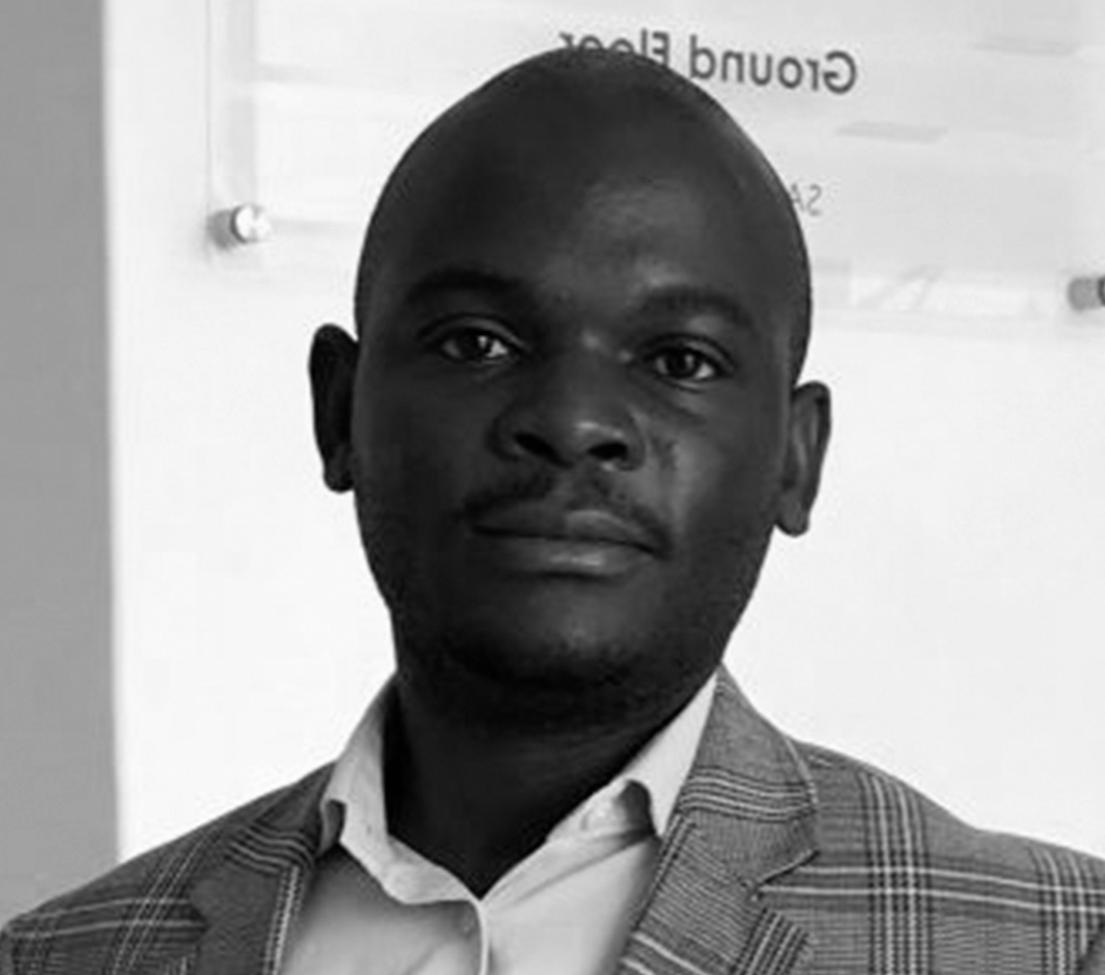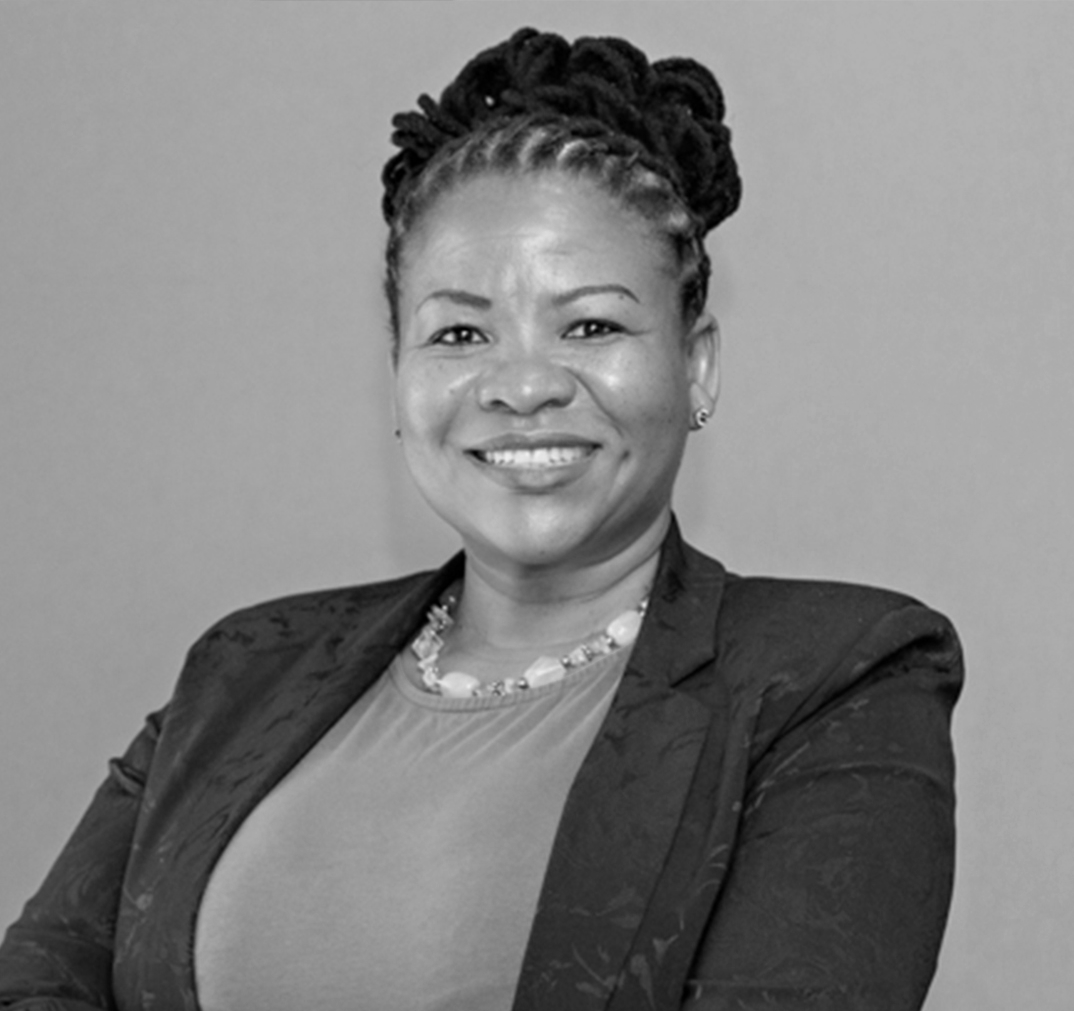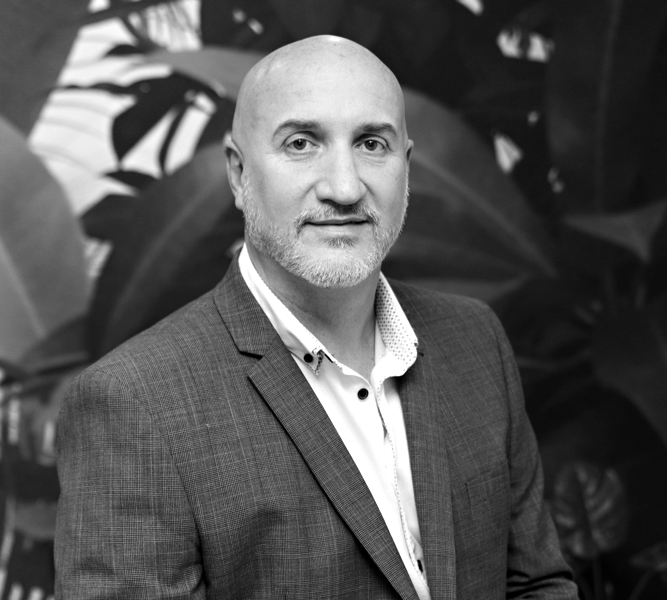4: Talifhani Khubana
CFO: Pan South African Language Board
The Pan South African Language Board was established by an Act of Parliament in 1995, it falls under the Department of Arts and Culture and its purpose is to promote multilingualism in South Africa, where we have eleven official languages.

CIARAN RYAN: This is CFO Talks and today we are going to be talking to Talifhani Khubana, chief financial officer for the Pan South African Language Board. The Pan South African Language Board was established by an Act of Parliament in 1995, it falls under the Department of Arts and Culture and its purpose is to promote multilingualism in South Africa, where we have eleven official languages. The Act is also intended to promote broader use of the lesser-known indigenous languages, such as the Khoisan, and even sign language. In addition the Act is there to promote and ensure respect for all languages commonly used by communities in South Africa, including German, Greek, Gujarati, Hindi, Portuguese, Arabic, Hebrew and other languages used for religious purposes in South Africa. So we are delighted to welcome Talifhani Khubana, chief financial officer for the Pan South African Language Board to CFO Talks. Welcome, Talifhani.
TALIFHANI KHUBANA: Thank you.
CIARAN RYAN: Can you start off by giving us a brief rundown of the Pan South African Language Board and the work that it does.
TALIFHANI KHUBANA: The Pan South African Language Board is a constitutional entity that was started by an Act of Parliament in 1995, its responsibility in the main is to promote multilingual living in South Africa. The work of PSALB is very integral in [1.18] development and it’s quite important in terms of making sure that South Africa in its diversity remains united. So that is in the main the focus or the mandate of the PSALB but, of course, we go beyond just promoting South African languages to embracing languages that are also spoken in South Africa, such as languages spoken by people from Germany, Greece and other countries.
CIARAN RYAN: So you are also promoting languages that are not indigenous to South Africa, why is that?
TALIFHANI KHUBANA: The purpose is that South Africa is a rainbow nation, it’s a country in which we ought to be able to communicate with one another. In other words, as South Africans, including those who come from abroad, we need to be united in our diversity. So that is why the purpose is also to embrace the languages that are spoken in South Africa, which do not necessarily originate from South Africa.
CIARAN RYAN: How important is the work of the the Pan South African Language Board and how do you measure the impact?
TALIFHANI KHUBANA: The language is actually the business, the language is the economy, you might find it questionable but in order for us to conduct any business, in order for us to communicate, be it in business, in church, at schools, anywhere else, we’ve got to use languages. So the work of PSALB is very important in that it actually unites people from their diverse cultures, diverse background and through language we are able to then participate in various activities, be it in the economy or in our daily lives, language is important and we believe that the impact of language is seen when people are united because we are united from our diverse culture by languages.
CIARAN RYAN: One of the things that we are starting to see in South Africa is the promotion of indigenous languages in the school system. Now, of course, English is the language traditionally used in business but we are seeing a lot of the schools now teaching one of the indigenous languages and we have eleven of those in South Africa. Is this part of what you’re doing at the Pan South African Language Board?
TALIFHANI KHUBANA: Correct, that is what we actually focus on, we are saying that as much as currently in South Africa English is the business language, we can embrace all other languages and make sure that out of those languages we actually do business out of them. I’ll give you a typical example, if you are doing business in Limpopo and you speak English only, there are clients and a market that you might want to tap into and language could be a barrier. But when you understand the local language that means you are also able to tap into a new market. So that is the importance of actually promoting languages irrespective of the fact that the business language and the language of learning is English currently.
SA language statistics
CIARAN RYAN: Speaking a second language is quite a prominent thing in South Africa. Most Afrikaaners, I would imagine, speak English and perhaps another indigenous language as well, do you have any statistics about the number of South Africans that are speaking a second language? For example, people of a Zulu background if they are entering into the business world they probably would have to speak English if they come to one of the major cities, are there any stats available on that?
TALIFHANI KHUBANA: We do have stats but unfortunately I don’t have statistics on hand but the census is able to demonstrate the demographics and also the languages that are commonly spoken in various areas. For example, in Limpopo there are three languages that are commonly spoken and when I say languages I am referring to indigenous languages, Venda, Tsonga, there’s also Sesotho sa Leboa and many other languages that are spoken there but there is concentration on three indigenous languages, which is Venda, English and Sesotho sa Leboa, apart from all other languages. So we do have statistics that would inform us in terms of each province, in terms of languages that are commonly spoken and those that we regard to be the official provincial languages.
CIARAN RYAN: Right, I have to ask you this question, how many languages do you speak?
TALIFHANI KHUBANA: It’s quite a good question, however, as a young man from Limpopo you are forced to speak a lot of other languages, so I would say I speak more than five languages.
CIARAN RYAN: Five languages, how many of those would be indigenous?
TALIFHANI KHUBANA: I speak Venda, which is my language of origin, I speak Shangaan, I speak Sesotho sa Leboa, I speak Sesotho, I speak Setswana, Afrikaans, Zulu, I think those are the main languages I am comfortable with.
CIARAN RYAN: So Venda is your home language?
TALIFHANI KHUBANA: Yes.
CIARAN RYAN: Do you understand Shona?
TALIFHANI KHUBANA: Shona in terms of greeting and a few other words, yes I do understand but I am pretty much learning.
CIARAN RYAN: Tell us a little bit about yourself and your journey to chief financial officer of the Pan South African Language Board. How did you start off, did you decide at a certain age you were going to pursue accounting as a degree or how did you come to this position in life?
TALIFHANI KHUBANA: I actually started with a degree in BCom accounting and as I studied that I also went to the world of work, where I started working as a graduate. I had a lot of interest in corporate but part of that along the way then changed when I joined the Auditor General, which is one of the constitutional or ISD, Institutions Supporting Democracy, that we have and then we realised that there are language rights issues as well, apart from many other rights that South Africans have. So I then became very passionate about issues affecting people in their daily lives. I continued to study a BCom accounting honours degree, doing my MBA and, of course, joining SAIBA, where I qualified as a certified chief financial officer, the CFO designation, and many other qualifications that I also hold from other professional institutions. But I must indicate that what actually pushed me to join PSALB was after I had been offered an opportunity as a CFO but when I looked at the language mandate I realised that there is a contribution that I could offer over and above the fact that we are generally accountants by our own qualifications. So that is how I then said, look, I can partner in the promotion as multilingual living as much as I am an accountant.
CIARAN RYAN: Right, so you chose this out of passion, you could have gone into the corporate world, you did say that you worked for the Auditor General for a period of time as well, so this is really a pursuit of passion for you.
TALIFHANI KHUBANA: Yes, language in itself, apart from it being a linguistic human right to mankind, language in itself for me is really about who we are as people. We are who we are and most of the time language cannot be separated from religion and neither can it be separated from our culture, therefore, it is who we are. So I felt that it was something that I would personally pursue as such as many would think, well, language is really not a career, a field that one would really pursue.
A typical day in the office
CIARAN RYAN: Okay, talking a little bit more about the role of chief financial officer at PSALB, as CFO do your responsibilities extend beyond the numbers to broad management issues? Can you give us insight into a typical day at the office for you?
TALIFHANI KHUBANA: As the chief financial officer for Pan South African Language Board I am not only responsible for only the traditional financial management and supply chain, I am responsible for IT, communications and human resources. So that means my day is filled with a very interesting landscape in that apart from the traditional role and responsibility of a CFO, I now have to stretch myself to dealing with issues of human resource or rather corporate services because that includes information, communication and technology that also includes human resources itself. So my scope is quite broad, it then says to me you can no longer be a traditional CFO who is just a man behind a computer punching numbers, you are now required to be more diverse.
CIARAN RYAN: Having said that, what are the issues that keep you up at night or shall I say where do you spend most of your time, is it on people issues or compliance issues, strategy, boardroom issues, where are you spending most of your time?
TALIFHANI KHUBANA: I think as a CFO I almost refer to the fourth digital era as one of the buzzwords that we have that is currently trending, issues of strategy, issues of compliance, these have become hard issues. We’ve got policies in place, we’ve got structures in place to support those strategies but if there’s one thing that keeps a CFO up at night it’s people management because that is not static, it’s very dynamic. I would like to refer to one of the authors who I love, Simon Sinek, who says that to influence the people there are only two options, the behavior of the people can only be changed by either seeking to manipulate them or inspiring them. So every day, every night as a CFO you ought to be thinking how do I inspire the team to take the mandate forward, while at the same time are able to remain compliant.
CIARAN RYAN: It’s really a question of inspiring, there are two ways that you can get people to do work.
TALIFHANI KHUBANA: You either manipulate them or you inspire them and in this case I choose the latter in that you would rather inspire them than manipulate them.
CIARAN RYAN: Give us your vision for the language board in five years’ time, where would you like to see it, what kind of role will it be playing in the commercial and the cultural and the economic life of the country?
TALIFHANI KHUBANA: As a country that is diverse, given the different backgrounds and languages that are spoken, we want to see in future a South Africa that is not only united on paper but a South Africa that is meaningfully united in a sense that be it in business, be it at schools, everywhere else, we should be able, at least as South Africans, to be able to speak each other’s language. We may not necessarily be able to speak eleven of them but we should be able to make sure that wherever we are at we are able to speak a few local languages because that will give meaning to business, that will give meaning to the entire economy.
Learning a new language
CIARAN RYAN: Right, so if somebody wanted to learn an indigenous language, be it Zulu or Sotho or Tsonga or whatever, where is the best place for them to start, do they go online and just look for a language school?
TALIFHANI KHUBANA: The benefit that we have in the current era of technology or digital era is that all languages are available online, you either find a dictionary or you find a Google learning facility that can translate from one language to the other, so there are a lot of platforms that can be used. The traditional way of learning is you just find a colleague who speaks a different language, befriend him and learn the language.
CIARAN RYAN: Right, so the best way is to find somebody who speaks another language and just open up a conversation and learn a few phrases and take it from there.
TALIFHANI KHUBANA: Exactly.
CIARAN RYAN: Final question, give us an idea of the great influences of your life, what books you have read that influenced you or people who you admired from a distance, who would those people be?
TALIFHANI KHUBANA: I would say one of the authors in terms of leadership I would say is Simon Sinek. I also have a spiritual author, who is called Thomas Ishmael Ramalekana, he has written a piece about the dangers of giving up. I feel that as a leader these two authors influence my leadership style a lot. But at the same time I would say that I am quite inspired by ordinary people doing extraordinary things and making an honest living that actually inspires me more than anything else.
CIARAN RYAN: Right, so sometimes they are not really the very prominent people but the ordinary people who really are doing something or have pulled themselves up by the bootstraps, so to speak, and done something with their lives, which is quite extraordinary.
TALIFHANI KHUBANA: Yes, these are ordinary people who are just going about their daily lives doing extraordinary things and making an honest living out of any opportunity that they get and out of those opportunities they are able to empower their children and those children become the leaders of tomorrow and that’s what inspires me.
CIARAN RYAN: I think we’re going to leave it at that, thank you very much Talifhani. That was Talifhani Khubana, chief financial officer of the Pan South African Language Board.





